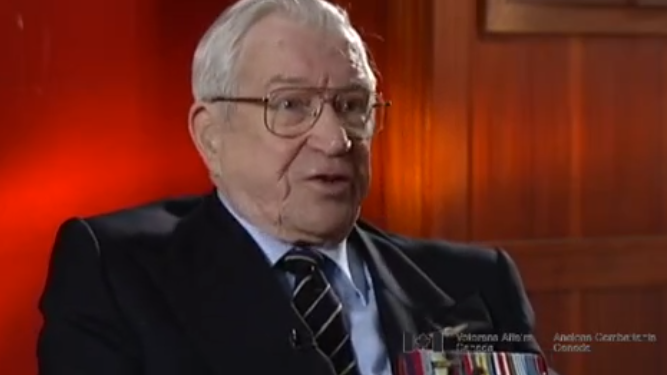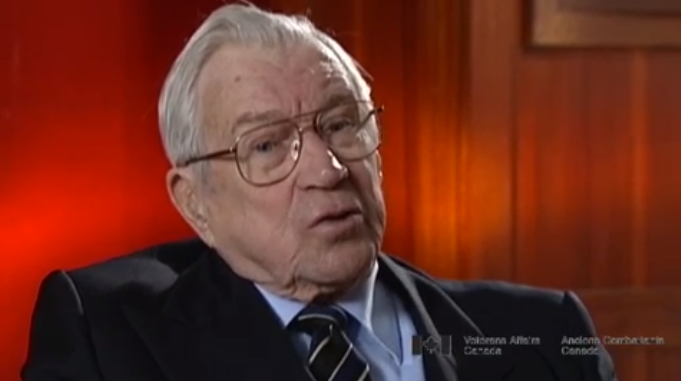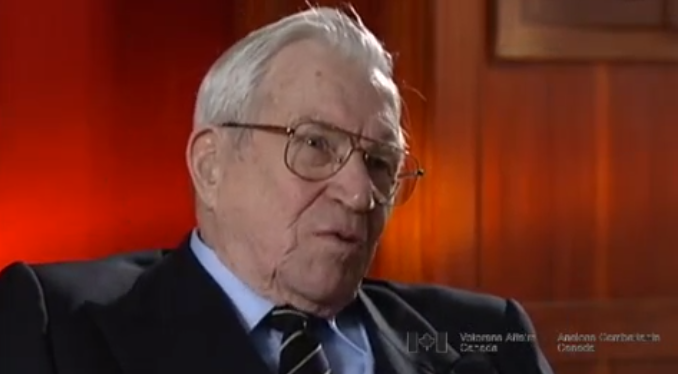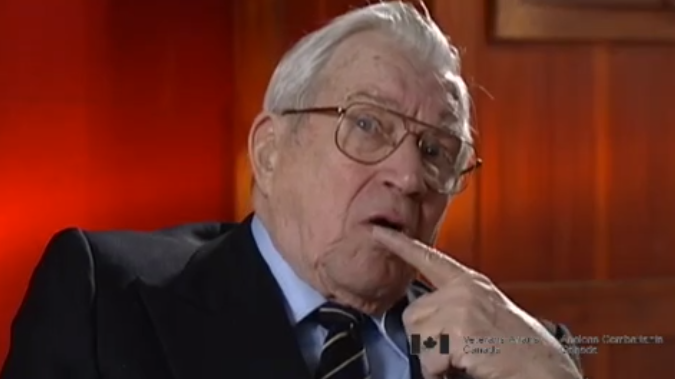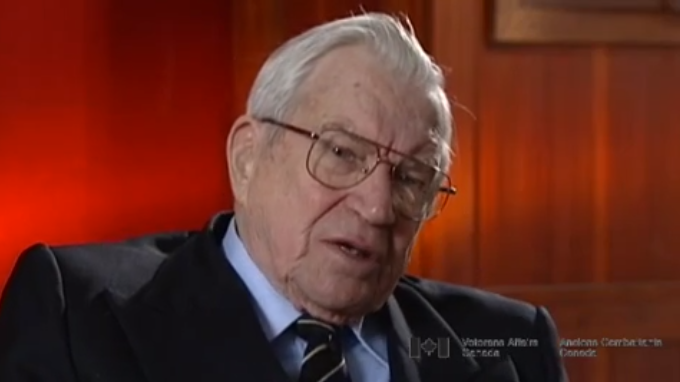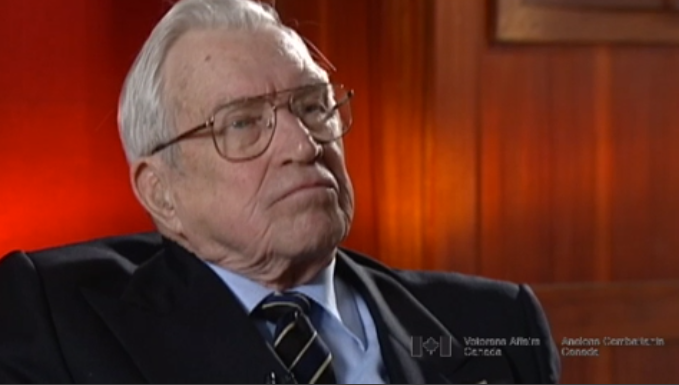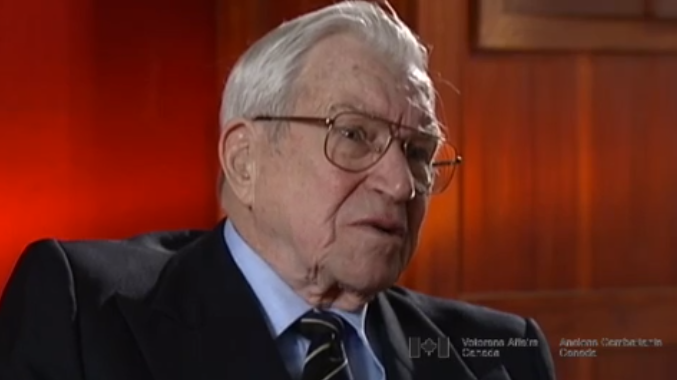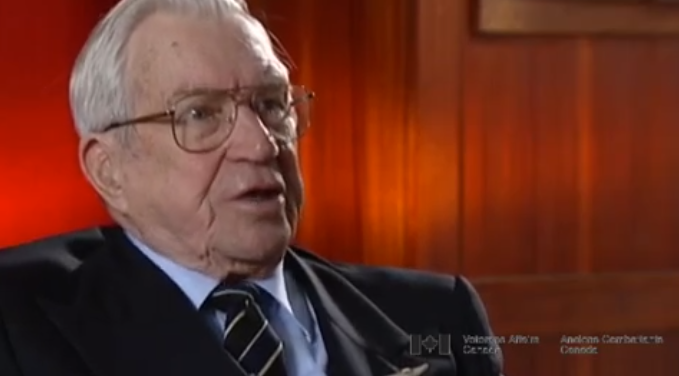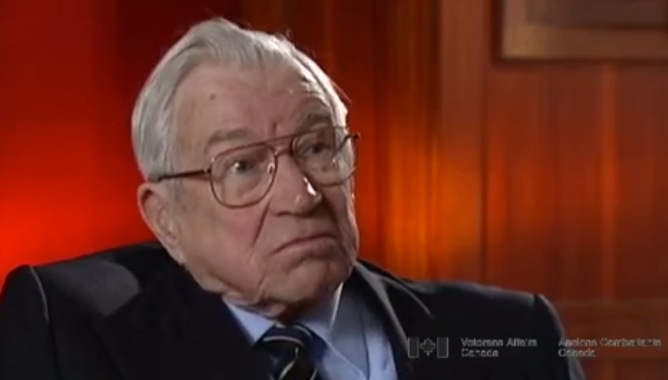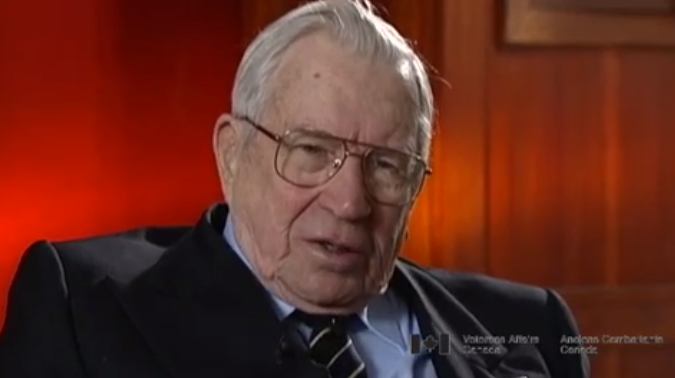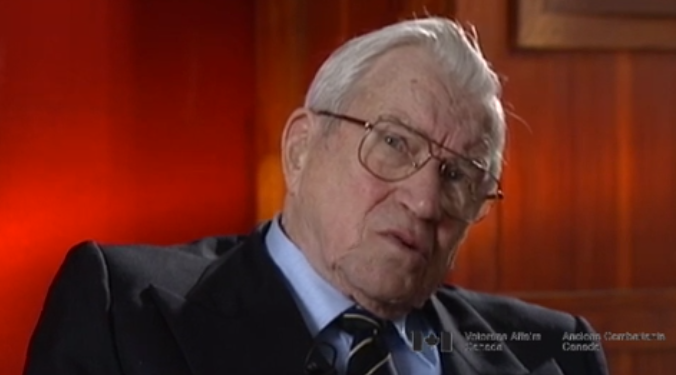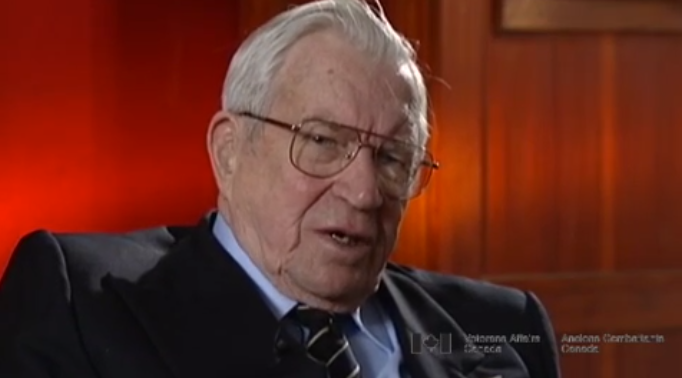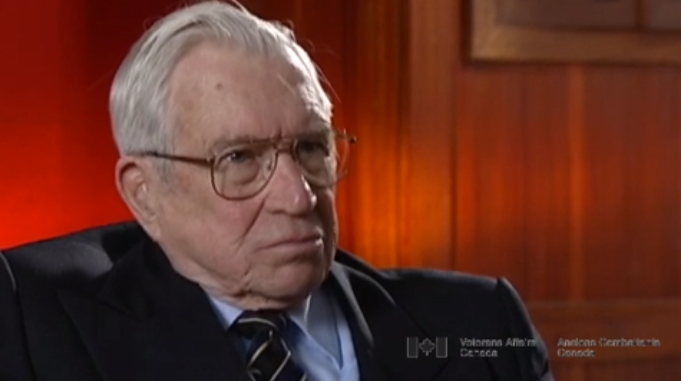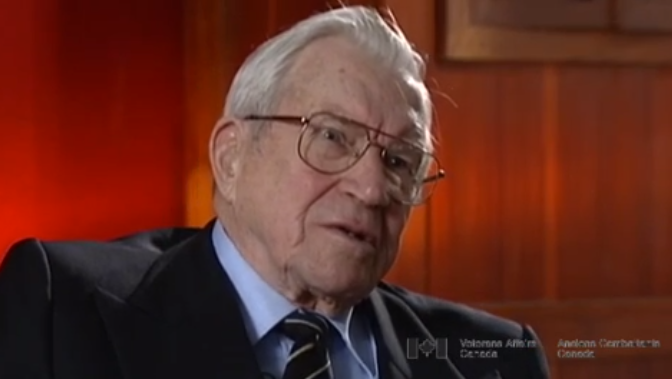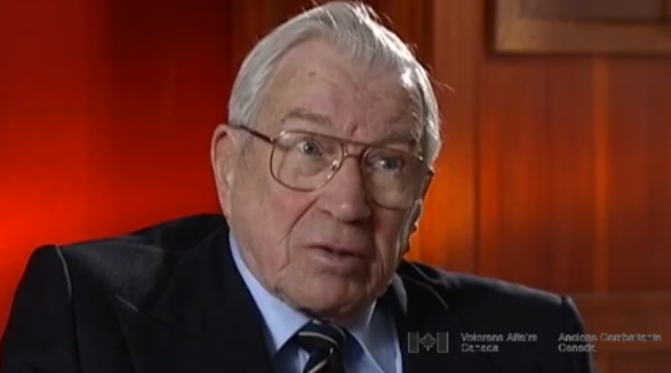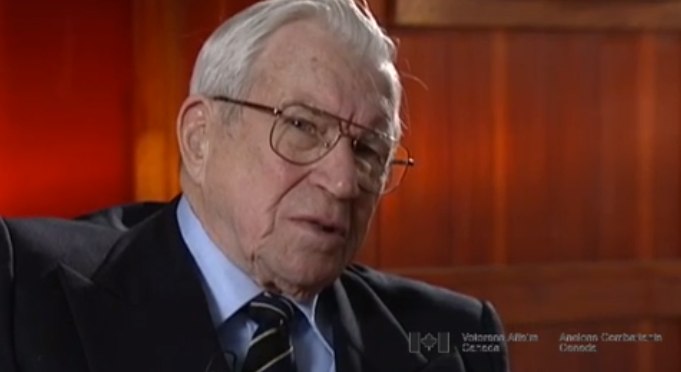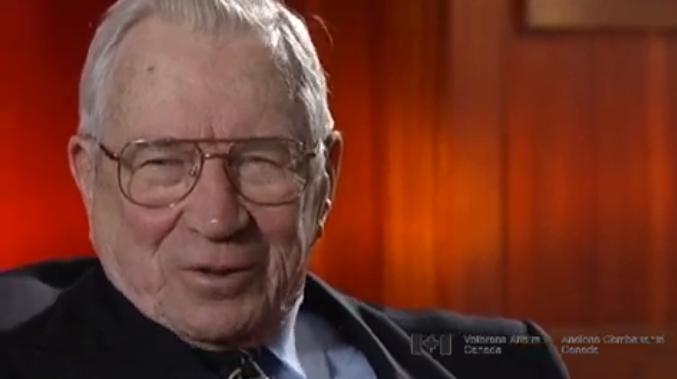Recovering the dead
Heroes Remember
Recovering the dead
Transcript
Soldiers carrying fallen soldiers on stretchers.
bloated. So when we figured that they were clean, we said to the stretcher bearers that came with us, “Here they are” and uh, jeez, they didn’t want to touch them. So we had to heave them out of the water and onto the bank and onto theMilitary medic truck rolls across a hilly road.
stretchers and uh, that was a lousy job, a lousy job. First of all, having to search these fellas, you know, pry open their mouths to see if there was a trigger in there or anything. That was a nasty one.Description
Mr. Bowen discusses the fact that the Chinese would set ambushes for stretcher bearers attempting to recover the dead, and would sometimes booby-trap the corpses.
Gerald Bowen
Gerald R. Bowen was born in Ottawa, Ontario on October 13, 1925. He attended Lisgard High School, and was a paperboy. His family had prior military experience. His uncle had served in the Air Force and his father in the Army, later becoming an historian with the Department of National Defence. Mr. Bowen enlisted in the Navy where he became a telegrapher, serving aboard a Royal Canadian Navy frigate on convoy duty in the North Atlantic until the war ended. He left the service for a brief time and re-enlisted in the Canadian Army, where he became a paratrooper and a specialist in sabotage. He later served as a peacekeeper in Cyprus. Mr. Bowen’s extensive experience in the Canadian military offers us some very informative and perceptive anecdotes.
Meta Data
- Medium:
- Video
- Owner:
- Veterans Affairs Canada
- Duration:
- 2:06
- Person Interviewed:
- Gerald Bowen
- War, Conflict or Mission:
- Korean War
- Branch:
- Army
- Units/Ship:
- Royal 22e Régiment
- Rank:
- Major
- Occupation:
- Pioneer Officer
Related Videos
- Date modified:



